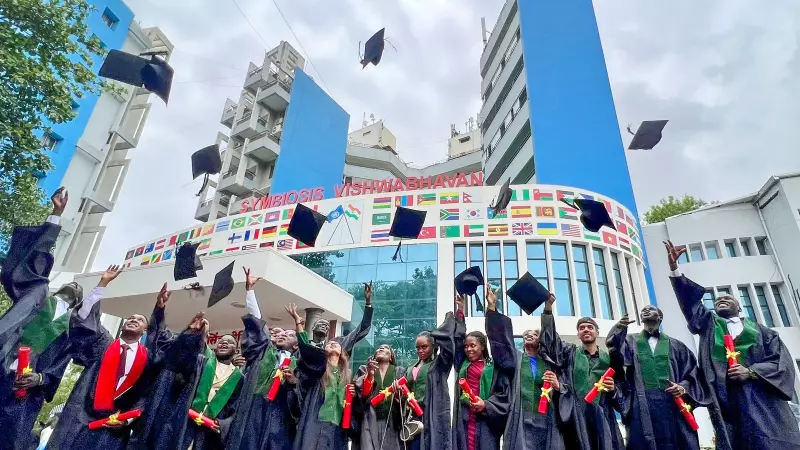
Pune's academic landscape witnessed dramatic shifts in the prestigious QS Asia University Rankings 2025, with Symbiosis International University (SIU) achieving remarkable success while Savitribai Phule Pune University (SPPU) faced significant challenges.
Symbiosis Soars to New Heights
Symbiosis International University has emerged as Pune's standout performer, climbing an impressive 28 positions to secure the 62nd rank in Asia. This remarkable achievement places SIU among the continent's top educational institutions and highlights its growing academic reputation.
The university's stellar performance can be attributed to several key factors:
- Enhanced academic reputation among global employers and academics
- Improved faculty-student ratio ensuring better learning experiences
- Strong international research network and collaborative partnerships
- Growing citation per faculty indicating research quality and impact
SPPU Faces Ranking Challenges
In contrast, Savitribai Phule Pune University experienced a substantial decline, dropping approximately 100 positions to land in the 351-400 band. This significant slide marks a concerning trend for one of Maharashtra's most historic universities.
University officials have acknowledged the dip in rankings but remain optimistic about recovery strategies. The decline primarily stems from:
- Reduced scores in academic reputation metrics
- Challenges in maintaining faculty-student ratios
- International research collaboration metrics needing improvement
- Increased competition from other Asian universities
Maharashtra's Mixed Performance
The QS rankings revealed varied results across Maharashtra's educational institutions. While Symbiosis celebrated its ascent, other Pune-based universities showed different trajectories:
MIT World Peace University maintained its position in the 281-290 band, demonstrating stability in a competitive environment. The institution's consistent performance reflects its established academic framework and steady growth.
What This Means for Indian Education
These ranking movements highlight the dynamic nature of higher education in India and across Asia. The mixed results underscore the importance of continuous improvement and adaptation in global academic standards.
"Rankings serve as important benchmarks, but they're not the sole measure of an institution's value," noted an education expert familiar with the QS methodology. "What matters most is how universities use this feedback to enhance their educational offerings and research capabilities."
The 2025 QS Asia University Rankings assessed institutions across 11 key indicators, including academic reputation, employer reputation, faculty-student ratio, international research network, and citations per paper. The comprehensive evaluation provides valuable insights into the evolving landscape of Asian higher education.





